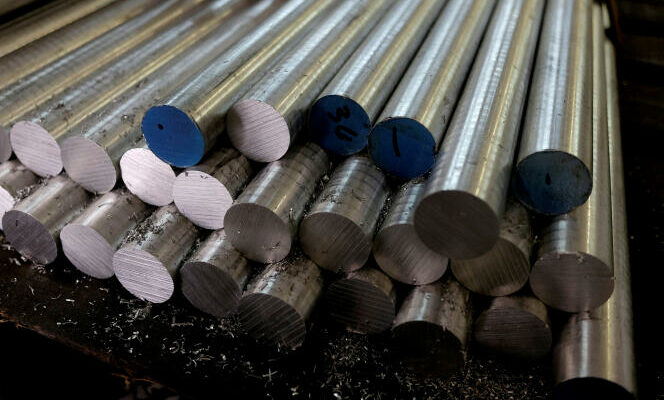The United Kingdom announced on Monday, December 18, that it would introduce a new carbon tax on carbon-intensive imported goods by 2027, following on from a similar mechanism planned in the European Union (EU). .
“Goods imported into the UK from countries with lower or no carbon prices will have to pay a tax by 2027, ensuring that foreign products face a comparable carbon price to those produced in the UK. United “according to a press release from the British government.
This tax will apply to carbon-intensive products in the iron, steel, aluminum, fertilizer, hydrogen, ceramics, glass, and cement sectors. The measure will be subject to more in-depth consultation in 2024, in particular to determine the precise list of products concerned.
This new system will work “alongside the UK emissions trading system” – which has taken over from the European carbon market created in 2005 since Brexit –, the reform of which is also under study, London said in its press release.
“Rights to pollute”
In the EU, the carbon border adjustment mechanism (MACF), a unique system in the world, is due to come into force in 2026. The tax will force importers into the EU of goods from third countries to purchase certificates to cover CO emissions2 direct costs generated by these products, in order to create fair conditions of competition between foreign companies and European companies, which must buy “rights to pollute” on the European carbon market.
If a carbon price already exists in a third country, importers will only pay the difference. “China has, for example, already set a carbon price, which is still lower than that of the EU but which could increase. The hope is that every country does the same”explains to World Thomas Pellerin-Carlin, director of the EU program at the Institute of Economics for Climate. Only countries with the same climate ambition as the EU will be exempt.
The system will take into account indirect emissions from electricity used for the production of imported products, according to a methodology which will be defined by the European Commission in 2026.
The mechanism will concern imports from sectors deemed the most polluting (iron, steel, aluminum, cement, fertilizers, electricity) proposed by the European Commission, extended to hydrogen, as demanded by the European Parliament. By 2030, the MACF will be extended to all sectors where there are risks of carbon leakage, based on a list to be established by the Commission. MEPs wanted, for example, to see certain plastics or chemicals covered.
